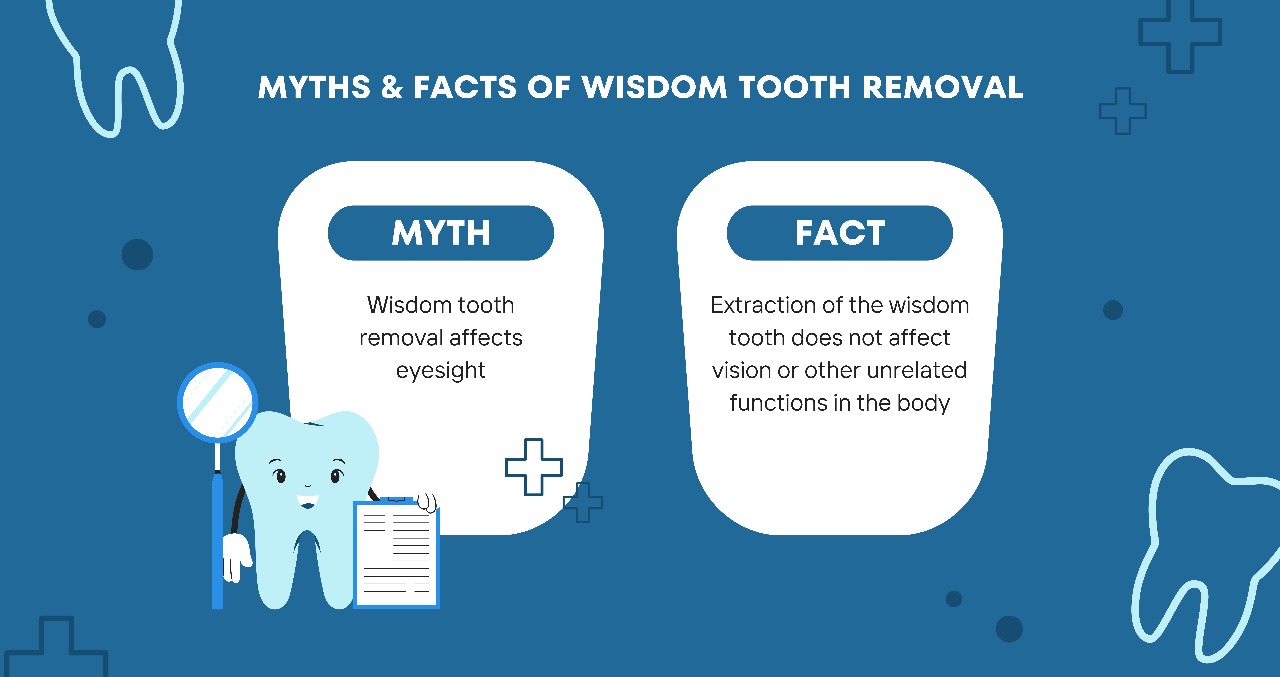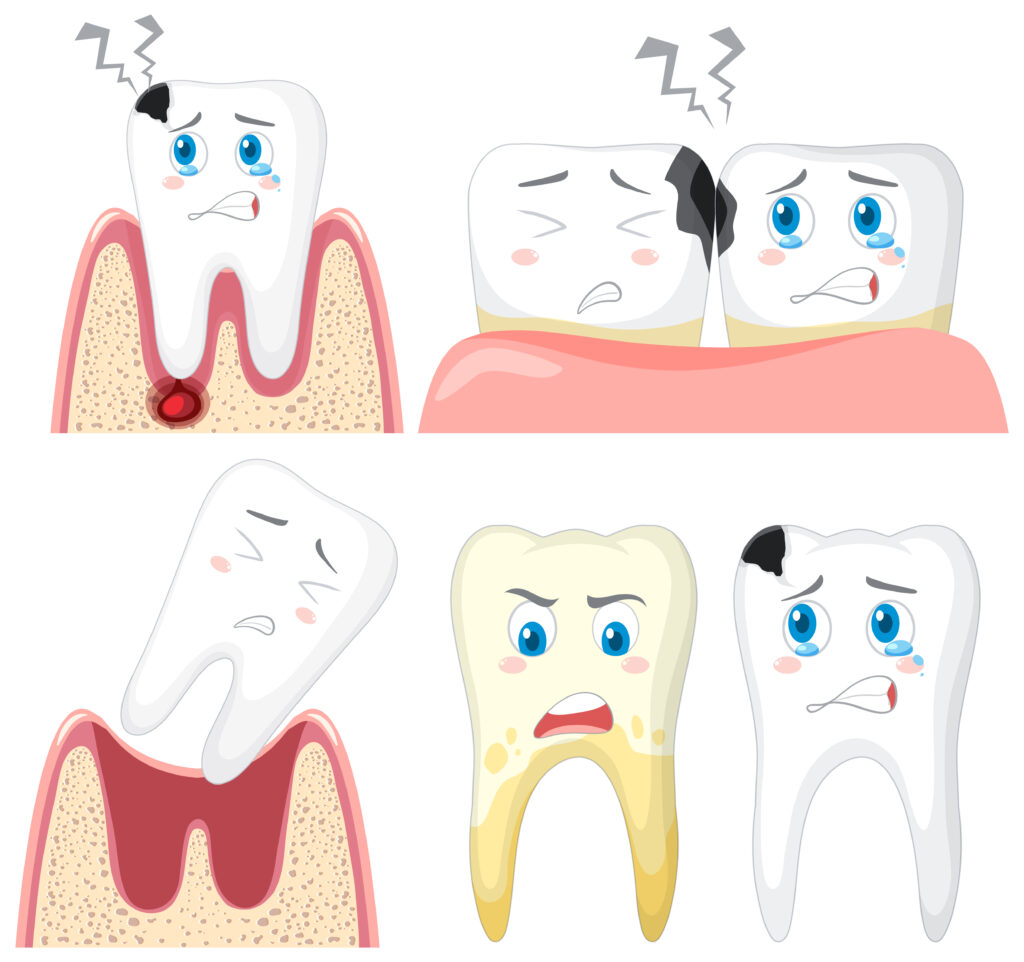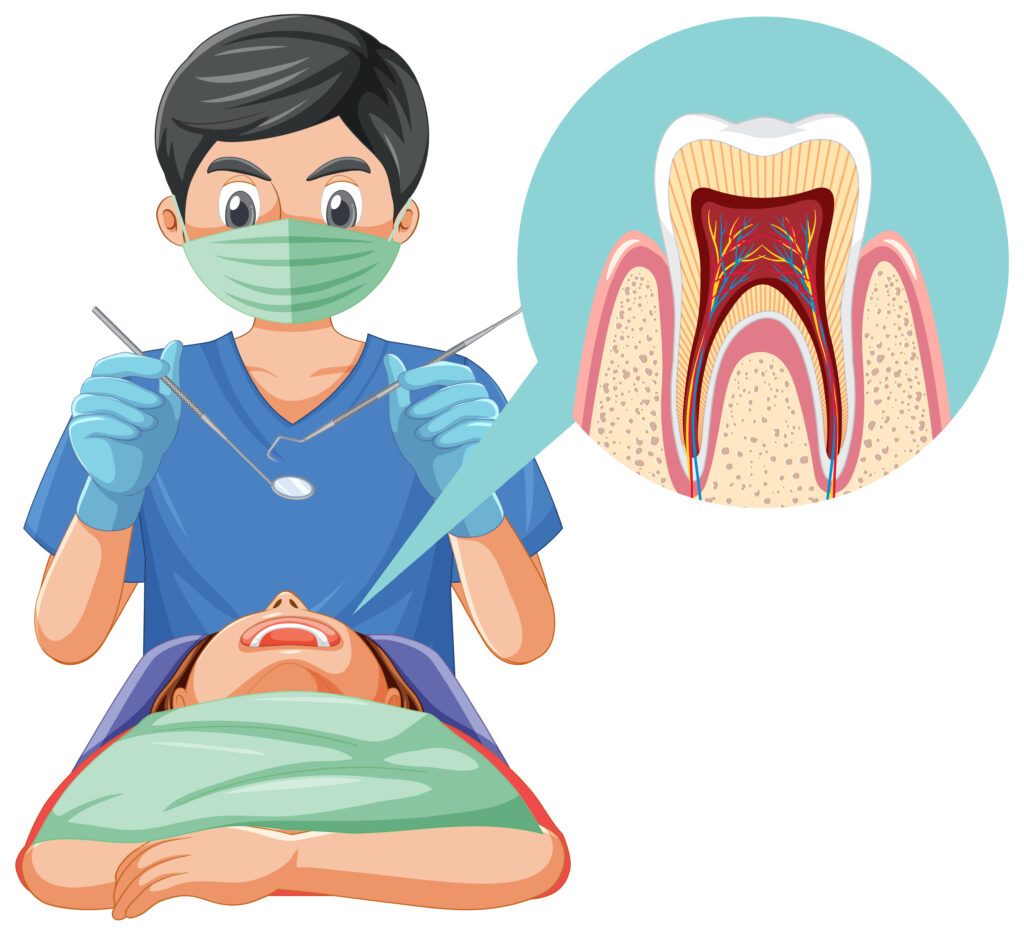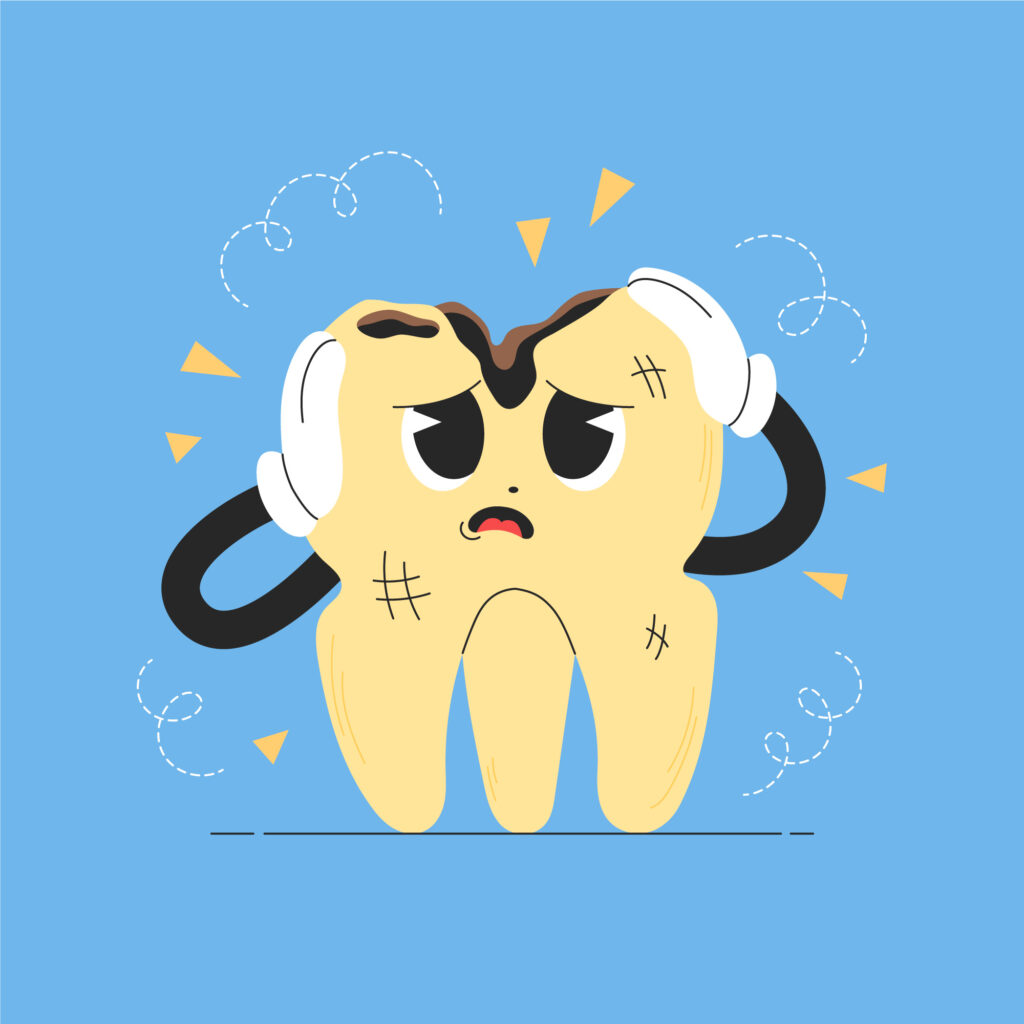
Are you scared to take out your wisdom tooth? It may be because you’ve been fed myths & facts of wisdom tooth pain and the extraction process. These widespread misconceptions cause many people to delay or avoid wisdom tooth removal altogether.
If you’ve heard that wisdom tooth removal messes with your eyesight or you’ll have a painful recovery, it’s time to separate fact from fiction.
In this blog, we’ll explore common misconceptions about wisdom teeth and uncover the real wisdom tooth extraction facts so you can make an informed decision without fear.
So, let’s get started!
10 Misconceptions and Myths & Facts of Wisdom tooth Removal
Let’s explore some of the most common myths related to wisdom tooth extraction and debunk them with the reality:
Myth No. 1: Wisdom tooth removal affects eyesight.
Fact: This statement is not supported by any scientific research. The wisdom teeth are situated at the very rear of the oral cavity, and extraction of the teeth does not affect vision or other unrelated functions in the body. Instead of dental procedures, eye health is determined by things like genetics and the overall health of an individual.
Myth No. 2: Wisdom tooth problems don’t arise at a later age.
Fact: Although most people experience problems with their wisdom teeth in their late teens or early twenties, problems can occur at any age. Specific issues like the size of the jaw and position of the teeth, level of cleanliness, oral health, and sometimes eruption of wisdom teeth in middle age require one to visit a dentist.
Myth No. 3: Wisdom tooth infection doesn’t cause other problems.
Fact: An infection in a wisdom tooth can cause more than just pain in the affected area of the mouth. If the bacteria is not treated, it will affect other parts of the body, causing abscesses and even systemic infections. This connection means that any sign of infection should be treated as soon as possible.

Myth No. 4: Extracting wisdom teeth is always painful.
Fact: Today, with the use of anesthesia and sedation, patients experience little or no discomfort during and after the procedure. Dentists take great care to minimize pain during extraction, using various methods to ensure a smooth experience. Discomfort after the surgery is usually controlled with medications that the doctor may recommend or that are available over the counter, and most patients are usually able to go back to their daily activities within a few days.
Myth No. 5: Dentists advise unnecessary wisdom tooth extraction.
Fact: Extraction is only advised when necessary; for instance, if the tooth is impacted, there is a likelihood of the patient developing an infection, or there is evidence that the teeth are going to crowd. People should have regular check-ups of their teeth and gums to ensure that when these wisdom teeth erupt, action is taken. As for the question of whether your wisdom tooth should be extracted or not, you have to rely on your dentist’s professional opinion.

Myth No. 6: There is no need to remove pain-free impacted wisdom teeth.
Fact: Deeply impacted wisdom teeth are silent killers! They may not cause any pain at the moment, but they can cause infections, cysts, or tumors in the jaw in the future. The impacted teeth also affect other teeth and the gums surrounding them and can lead to other problems such as misalignment, periodontal diseases, and tooth loss. That’s why taking proactive action is usually advised to avoid future problems.
Myth No. 7: Wisdom tooth infection doesn’t lead to throat infections.
Fact: It is true that if a wisdom tooth is not removed, it can lead to severe problems such as swelling and infections in the throat. You may experience breathing problems, which may even lead to systemic infections. Any dental infection should, therefore, be treated early to avoid such complications.
Myth No. 8: You must have wisdom teeth removed before undergoing orthodontic work.
Fact: Every patient is different, and not all patients require their wisdom teeth to be extracted before they can receive orthodontic treatment. In some cases, the dentist may decide to track the development of wisdom teeth during orthodontic treatment. This will help assess the best approach in the treatment process and avoid a one-size-fits-all approach.
Myth No. 9: Recovery from extraction is always long and painful.
Fact: Recovery periods depend on the extent of the extraction, and most people can go back to their everyday routine within a few days. Adhering to post-operative instructions for the control of swelling and pain will also help improve the patient’s experience of recovering from surgery. This protects your teeth during the healing process, and seeing your dentist for follow-ups is a good idea, too.

Myth No. 10: Removing wisdom teeth changes your jawbone or facial shape.
Fact: The removal of wisdom teeth does not affect the shape of the jaw or face in any way. Any changes in facial structure are usually perceived as a result of natural aging, not oral healthcare procedures. Brushing teeth and flossing, along with visiting a dental professional on a regular basis, may contribute to general oral hygiene and aesthetics.
Conclusion
Knowledge of Myths & Facts of Wisdom tooth removal can empower you to make the right decision regarding your dental health. While all wisdom teeth don’t require immediate extraction, early intervention can help prevent serious complications in the future.
If you have any questions or concerns about the risks of wisdom tooth extraction, it’s important to seek advice from a dental specialist.
For expert wisdom tooth removal, consult with our experienced team at Gnathos Dental. Our specialists offer services using cutting-edge techniques, ensuring a smooth and pain-free wisdom tooth extraction experience. Trust us for professional care to safeguard your dental health.
Wisdom Teeth Removal FAQs
Q1. Do wisdom teeth always need to be removed? Myths & Facts of Wisdom tooth
Not necessarily. Most individuals have healthy wisdom teeth that do not result in any issues. However, if they are affected or likely to cause future dental problems, they may be pulled out. However, you can rely on your dentist’s advice on whether or not you require the removal of those teeth.
Q2. What are the benefits of wisdom tooth removal,Myths & Facts of Wisdom tooth?
The benefits of wisdom tooth removal include preventing potential crowding of teeth, reducing the risk of infections, and avoiding damage to adjacent teeth. It is, therefore, essential to remove the tooth early to avoid complications during the recovery process and in the future.
Q3. What are the risks of wisdom tooth extraction?
As with any surgery, there is always some risk involved when having your wisdom teeth removed. These may include infection, nerve damage, and slow healing. However, all these risks can be avoided if good care is taken and if you consult a professional dentist.
Q4. How does wisdom tooth removal relate to crowding?
There is a truth about wisdom teeth and crowding: If the wisdom teeth become impacted, the canine teeth are affected because they have to shift in order to make room for the third molars. Hence, wisdom teeth can be pulled out to prevent misalignment of other teeth and other dental problems.
